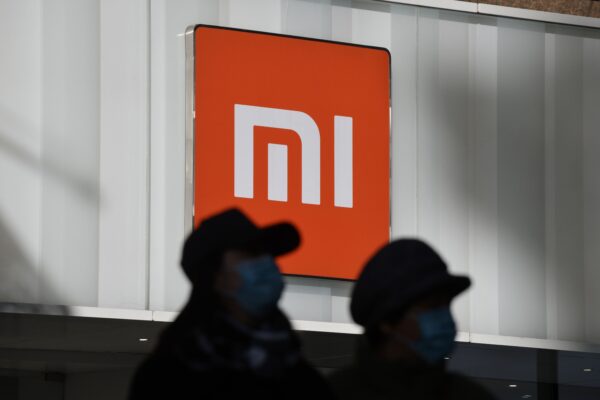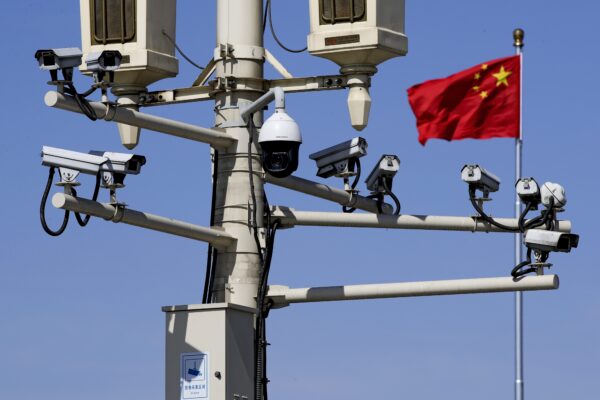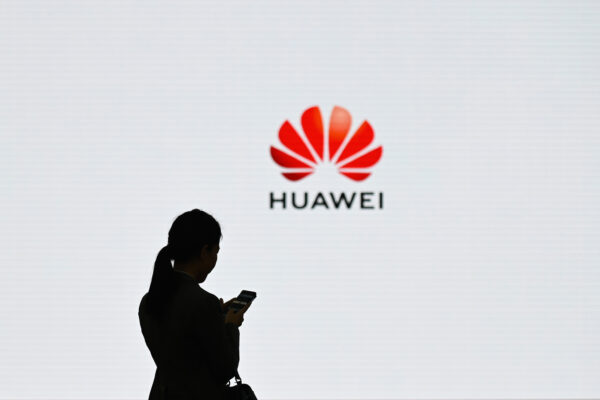
Recently, a mainland Chinese netizen named “v64500” wrote on the online forum “V2EX” that his internet-connected television was scanning electronic devices in his house and uploading the data to a company called “Gozen Data.” The netizen revealed that his television is a mainland Chinese brand called “Skyworth.”
The netizen thought the television was a bit slow and checked its backend service program and “found something called ‘Gozen Data’ and had no idea what it was doing.”
The netizen said the television used the Android system. After studying the data for a while, v64500 found that “this thing [Gozen Data] scans all the internet-connected devices in my house every 10 minutes.”
“It sends everything back, including hostname, MAC address, IP, and even network latency. It also scans names of surrounding Wi-Fi SSID and surrounding MAC addresses, and collectively sends them back to the domain name gz-data.com,” the netizen explained.
“That is to say, information including what smart devices there are in the house, whether or not your mobile phone is at home, who is connected to the internet in your house, and what is the name of your neighbor’s Wi-Fi is collected and uploaded to this domain at any time. Are you sure that this is not a spy service???” v64500 asked in the post.
The netizen also conducted a code analysis and uploaded a screenshot of the findings, which showed the Gozen Data service app corresponded to TVAC.apk—a free game app for Android.
“There are a lot of codes in it. One logic is that the ARP scans the local area network and uploads information from all internet-connected devices,” v64500 said.
The post has attracted widespread attention and hot debate among netizens.
Netizen zro said, “I wouldn’t dare to connect this kind of television to the internet, even at my own home.”
Another netizen said, “My Xiaomi router keeps requesting the API.miwifi.com domain name, once every 3 seconds, and I don’t know why it’s been doing this. (I’m) scared.”

“That’s why the Wi-Fi signal needs to be hidden. [There’s] too much [Chinese] domestic-made garbage. No wonder [the Chinese Communist Party (CCP)] was sanctioned by the United States,” said netizen free9fw.
“That’s why we need a clean network plan,” said netizen vinsony.
Skyworth Immediately Disables Gozen Data Service
On April 27, Skyworth TV issued a statement on its official website, saying the company immediately disabled the Gozen Data service on all Skyworth televisions.
The statement said that the service is provided by Beijing Gozen Data, which partnered with Coocaa, a cyber technology company under Skyworth. Coocaa is said to have sent a letter to Gozen Data to cancel their contract.
According to Gozen Data’s official website, the company is “a third-party big data company dedicated to intelligent marketing of household data,” and it is also “the first big data enterprise in China with household data as its core.” At present, the company’s data “effectively covers 149 million households, 457 million people, and over 140 million smart TV terminals,” according to the company’s website.
As early as 2014, Gozen Data formally established a strategic partnership with Skyworth’s Coocaa. At that time, Gozen had reached a long-term strategic partnership with Chinese and overseas television manufacturers including Skyworth, TCL, Changhong, Konka, Fun TV, Whaley, Sanyo, Toshiba, and Philips. It also cooperates with technology companies like Coocaa and content providers such as TVMao. It obtains first-hand smart TV data by installing SDKs (software development kits) via a platform abstraction layer (PAL), which changes the original software.
CCP Surveillance in China
In mainland China, the CCP’s surveillance is everywhere. Chinese residents live under the control of the CCP’s “Police Cloud,” system and all personal information, even including clothing, food, housing, and transportation is collected and monitored by the system.

The CCP’s Police Cloud system extracts data from videos, voice communications, cell phone locations, and other social resources.
Guizhou Province is the first national big data pilot zone in China, and the province’s police authorities have established a so-called “iron cage of data,” using it in all its operations including crackdowns and crime prevention, management, and control (of social order).
On Dec. 20 last year, netizen catcarterpi posted a picture on Twitter and said, “Big data, open-air prisons are taking shape.”
In the picture, the “City Hall Area Surveillance Video Analysis” system is closely monitoring petitioners, drug offenders, and criminals. The system also monitors the activities, or “motion trails” of these people, or “key people” as they are called in the system, at different times of the day. The bottom of the picture displays a person’s personal information and flight information as well as a small white line that reads “demographic and biometric information.”
The CCP’s internal reports obtained by The Epoch Times reveal that local governments in China are monitoring people on the internet on a daily basis.
The CCP Collects Big Data Around the World
The CCP is not only monitoring its own residents but also collecting big data globally.

Claudia Rosett, an adjunct fellow at the Hudson Institute, said in an article published by the Wall Street Journal last October that the CCP “uses the U.N. to expand its surveillance reach.” The U.N. set up global data plans with the Chinese regime including “a research center for crunching data from U.N. member states and a geospatial center to enlist China’s prowess with satellite surveillance.”
“The geospatial center will be based in Deqing County, in Zhejiang province, home to a geospatial industrial park and host in 2018 of a U.N. World Geospatial Information Congress,” the article states.
In September 2020, Shenzhen Zhenhua Data Information Technology Company (Zhenhua) was exposed for collecting huge amounts of data on more than 2.4 million people and 650,000 organizations worldwide.
Zhenhua “is building tools to process the world’s open-source information about influential people—culled from Twitter, criminal records, LinkedIn posts, YouTube videos, and more—into data that can be analyzed and used by universities, companies, government actors, and the Chinese military,” states a Globe and Mail report.
A Sept. 14, 2020 Washington Post report states that “Zhenhua’s marketing and recruiting documents characterize the company as a patriotic firm, with the military as its primary target customer.”
“Researchers and current and former U.S. officials say OKIDB [Overseas Key Information Database] appears consistent with a years-long push by the Chinese government to expand the country’s ability to harvest vast amounts of data for strategic purposes.”






Be the first to comment